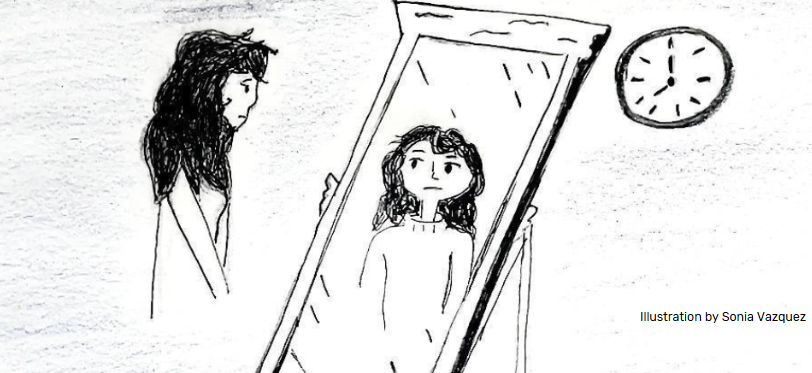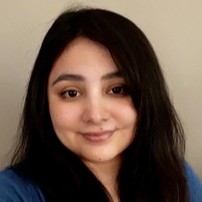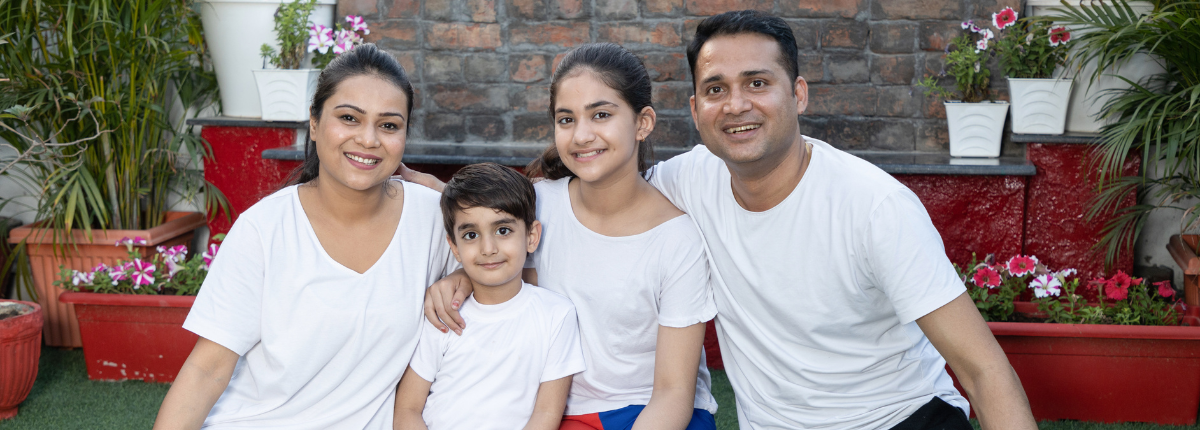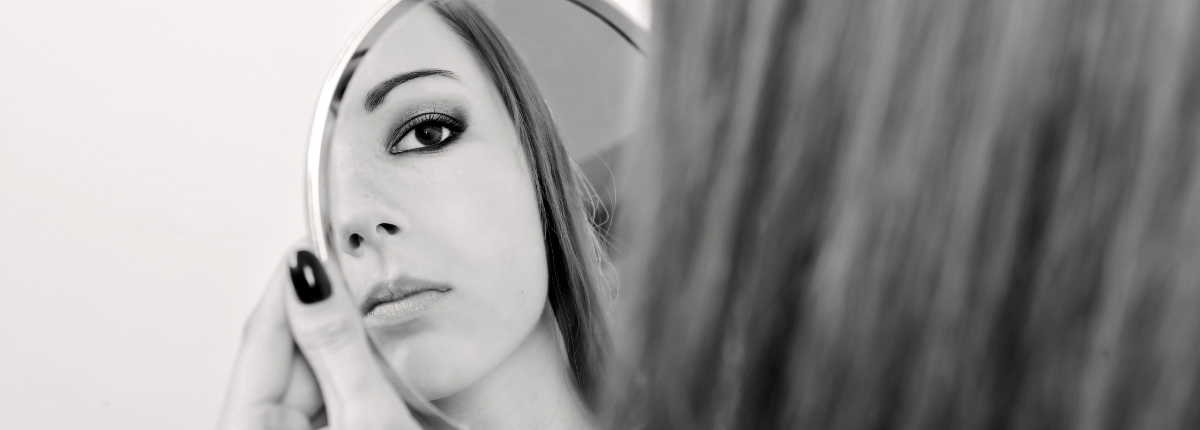This blog post represents the author’s views and should not be interpreted as professional/medical advice or endorsed by NEDA.
I’ve been struggling with these thoughts for years, never fully connecting any of them to something dangerous until I started noticing changes in my appearance in my early 20s. Even then, I wasn’t fully aware of what was happening. It wasn’t until I began to get better—years later—that I saw the full picture. Only then did I grasp how deeply I was caught in an eating disorder.
Have you ever experienced a life shifting moment that completely changes how you see the past? One moment, you think you understand why certain things happened to you, and the next, a new perspective changes everything. You thought you had moved on from something that once paused your life, only to realize it was still there, lingering.
Revisiting the Past
I didn’t know how unhealed I was. To me, this time in my life was just a blurry moment—something that happened, something gone. I believed I’d grown beyond it, that I’d “conquered it,” and it was just a sad moment that I didn’t need to dwell on. I thought it was a good mindset to have since I only felt shame whenever I looked back.
In my mind, it was all my fault. Logically, I knew better, deep down—but I couldn’t shake the guilt. I would tell myself I should have been mentally stronger, smarter, and more in control. I blamed myself for causing pain to those I loved and buried my pain so deeply that I almost forgot it was there.
Years later, I’ve finally started to see how wrong those thoughts were—and how cruel I’ve been to myself. How could it possibly have been my fault that I got sick? Why did I only see everyone else’s pain but my own at the time? And why did I have to face one of the darkest times of my life alone?
A Mirror in Art
It wasn’t a planned moment of healing that made me confront these feelings. It came unexpectedly while I was watching a TV show. A younger character was struggling with an eating disorder, and it was portrayed with subtlety—almost invisible to someone who didn’t experience it. But I saw them all: the stressed glances at food, the rehearsed excuses, the forced smiles, the obsessive thoughts, the sporadic sleep, the constant exhaustion.
It felt so real that I couldn’t keep watching. I had to pause because my reaction scared me. All those feelings I’d buried forced their way out. I was a teenager again, battling bulimia. Then, I was a very young adult, struggling with anorexia. I felt all those fears, that loneliness, and that vulnerability all over again.
The only difference between me and that character was that their loved ones noticed and supported them. Seeing this character receive the help, love, and support they needed and deserved felt like watching what could have been for me. Although painful, It was healing, in a way.
I realized how unkind I’d been to my younger self. I never let myself fully heal emotionally because I felt ashamed, I avoided it entirely. But now, I’m forced to confront it, and I want to. I’ve promised my younger self that I will no longer look back with shame but with understanding, kindness and with gentleness.
That character wasn’t me, but they mirrored my younger self in ways I hadn’t faced before. Their story forced me to see my own, making me realize how much I’ve been carrying all these years.
Questioning The Shame
For the first time, I’m asking myself hard questions:
- Why should I feel ashamed for something I couldn’t control?
- Why was I left to face this alone?
- Why am I still holding on to the belief that my pain doesn’t matter?
- Why and how did this happen to me?
Healing isn’t something that happens all at once. Sometimes, it starts in quiet moments—when a piece of art, or a conversation forces you to stop and feel. That TV show helped me take a step I hadn’t been able to take on my own for years. It made me realize that the shame I’ve carried doesn’t belong to me. It’s not my fault, and it never was.
An Unconventional Half-Recovery—Someone noticed
Although my first past healing process began mostly alone, it wouldn’t have started if it weren’t for a coworker giving me unsolicited advice on gaining muscle after noticing I’d lost weight. He was a personal trainer and unknowingly saved my life. I wouldn’t recommend commenting on someone’s body at all, but in this case, at that moment I felt it came from pure concern and I saw that he meant welI. I felt invisible, and his genuine remark made me feel seen for the first time in a long while.
Although my coworker giving advice about diet and exercise wasn’t the ideal thing to say to someone dealing with disordered eating and in many cases could have caused harm, it at least set me on the path to physical healing, because for whatever reason, I listened. Slowly, I started eating again.
The important part of me sharing this experience is that someone noticed and spoke to me in a non-threatening way, and that was exactly what I needed to hear at that moment. At the time, I didn’t even think I had an eating disorder because it didn’t fit the narrative I had always recognized. I just assumed my anxiety was affecting my health—I just didn’t know how.
Eating disorders don’t always look the way we expect them to. They’re complex, can be triggered in unique ways, and sometimes unnoticeable, even to the person struggling. For resources and to better recognize the signs, the National Eating Disorders Association (NEDA) website is an excellent place to start.
A Mirror in a Loved One
Not only am I grateful that this TV show began my full healing process, but I’m also thankful for the awareness it brought to the habits I once had. It opened my eyes to painful truths that I had buried, even from myself. Deep down, I always knew I was dealing with an eating disorder, but denial made everything easier. I’ve always been good at excusing things and talking myself out of them.
Around the same time as this sudden awakening, I saw myself again—not in art this time, but in a younger loved one. Everything she was doing felt heartbreakingly familiar. Her actions mirrored what I once did, and I recognized the silent pain behind them.
I couldn’t ignore it. I couldn’t—and can’t—do it again. I decided I wouldn’t let her go through this alone, and I wouldn’t allow the clear signs of disordered eating to be dismissed. I researched how to help her and made sure she knew she wasn’t alone and that none of this was her fault. She’s now in the process of healing, and I’m doing everything I can to support her every step of the way.
The Silence Around Mental Health in Many Cultures
The time I’ve spent reflecting has made me realize how dangerously common these struggles are. Conversations about mental health are often taboo in many cultures, including mine. There’s a reluctance to acknowledge or address mental illness, and that lack of openness leads to a lack of education. People often don’t recognize the early signs until it’s too late—until the problem becomes impossible to ignore. But it shouldn’t have to reach that point.
Catching the early signs in yourself or someone close to you can be life-saving. Yet how can we recognize something we don’t know how to identify? That’s why it’s so important to share resources, raise awareness, and educate ourselves and others as much as possible.
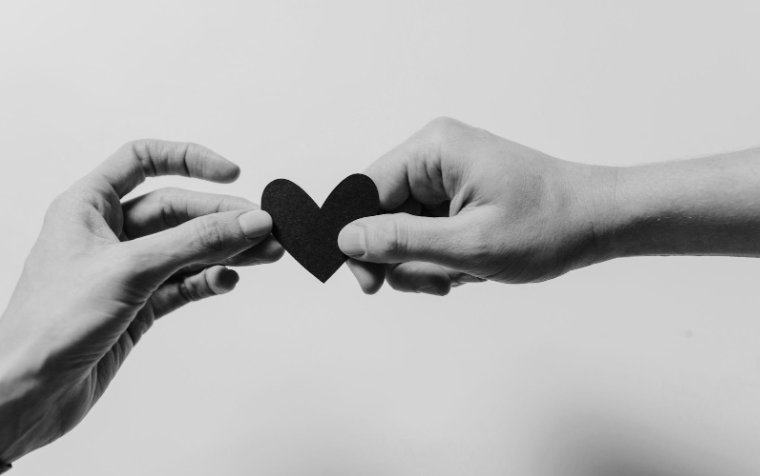
Photo by Kelly Sikkema on Unsplash
Using My Story
I’ve spent a lot of time thinking about how I can turn my experience into something meaningful. How can I help others now? What skills do I have to guide others toward a life they deserve? For a while, I felt stuck, unsure of where to begin. Then I realized that what I can do—what I already do—has value.
Making art is an act of vulnerability, and it’s through someone else’s art that I began to heal in ways I didn’t even know I needed. I can also share resources and information, tools that helped me recognize my own habits and thoughts. These same tools allowed me to identify warning signs in a loved one’s behavior and offer support.
Advocating for Change
We need to advocate for more funding and accessible treatment for mental health. If I’d had access to these resources back then, I think my healing process would have been kinder and less lonely, both to my younger self and to who I am now.
This is real. This is urgent. We owe it to ourselves—and to those we love—to notice. To really notice, to see. Just like any other illness, mental health struggles require treatment, care, and compassion. The time to act is now.
Resources
Are you concerned you might be struggling with an eating disorder? Take our confidential screening tool.
Are you looking for an eating disorder treatment provider? Find treatment in your area or online.
Are financial barriers preventing you from seeking the support you need? Learn more about free and low cost support options to connect with others and provide tools to promote recovery.
Sonia Vazquez is a writer, copywriter, and mental health advocate who believes in the power of storytelling to inspire change. Passionate about theater and creating art in all forms, she uses her work to explore identity, healing, and self-expression. She has written professionally through internships and independent projects. You can connect with her on LinkedIn and instagram.

